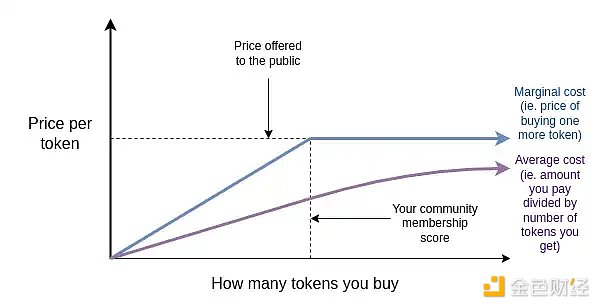Author: Zhang joy, BlockTempo
Ethereum founder Vitalik Buterin has recently been interacting with netizens on the social platform X very frequently, especially expressing his views on the DeFi track. Yesterday (29), Vitalik once again discussed the relationship between Airdrop and blockchain identity proof, using the topic of "airdrop" that is well known to people in the cryptocurrency circle, and praised "airdrop as a fascinating example of identity authentication."
Airdrop is a fascinating example of identity authentication
Vitalik first stated in the tweet that airdrop is a fascinating example for zero-knowledge proof (ZK) and blockchain identity authentication:
"Airdrop is a fascinating example of zero-knowledge proof, blockchain-based identity authentication, credentials and proof framework. The goals of airdrop are:
Paper hands (diamond hands opposite) distributed to community members instead of being sold immediately;
Reward contributions to the project;
Pursue equality (but accept some differences);
Fight against meaningless reward tasks.
Discounted sales can also be seen as a way of token distribution
In addition, Vitalik added that airdrops are not the only meaningful form of token distribution. For project parties, they can also sell tokens at a discount:
"A key point is that giving away tokens for free is not the only meaningful way. You can also sell at a discount.
Depending on the level of contribution you have, you can buy a corresponding amount of large amounts at a discount, which helps to make the supply of tokens more decentralized and reward those contributors, while also ensuring that there are real buyers involved."

Worldcoin still needs improvement
In response to Vitalik's mention of airdrops and identity proof, some community members immediately thought of Worldcoin, a cryptocurrency project supported by OpenAI CEO Sam Altman. V God also responded positively:
"Worldcoin can handle the identity proof part, which is good, but I think it also needs to increase the authentication of community members. After all, no one actually wants to distribute tokens to others. What people hope is that people who agree with the community hold these tokens. "
Last year, in the actual operation of Worldcoin, Vitalik also expressed doubts last year, believing that existing solutions still cannot prevent privacy leaks that may be caused by Orb hardware devices:
"Broader thinking around biometric technology and personality proof protocols is a good direction, but the risks include inevitable privacy leaks, further contraction of the right to browse the Internet anonymously, possible government coercion, and the practicality of ensuring security while maintaining decentralization."
In general, he listed four main risks:
Privacy. Registration of iris scans may leak information.
Expansion barriers. Unless there are enough devices that are easily accessible to anyone in the world, the World ID will not be reliably accessible.
Centralization. Orb is a hardware device, and we cannot verify that it is constructed correctly and has no backdoors. The centralization of the Worldcoin Foundation also has risks.
Security. Users' phones may be hacked, and users may be forced to scan their irises while showing public keys belonging to other people.
What does Vitalik think is a good way to authenticate?
Last week, Vitalik mentioned an authentication method, namely cross-social identity, in a 10,000-word article titled "Plurality philosophy in an incredibly oversized nutshell".
The book says:
"Many of the simplest ways to establish identity also undermine it, especially on the Internet. Passwords are often used to establish identity, but unless identity verification is done carefully, it can be leaked more widely.
Using a person's entire set of behaviors and interactions to confirm identity, such as determining community membership and a person's trustworthiness, this approach is comprehensive, reversible, and takes into account both privacy and security."
To this end, V God also expressed his full agreement. He believes that the core problem is that any single-factor identification technology is too fragile, so we should use multi-factor technology:
"Many airdrop attempts are being conducted in the Ethereum ecosystem, using a combination of multiple factors to determine the credibility and membership of an account, and giving it a universal basic income (UBI) or voting rights proportional to the score."
 JinseFinance
JinseFinance




